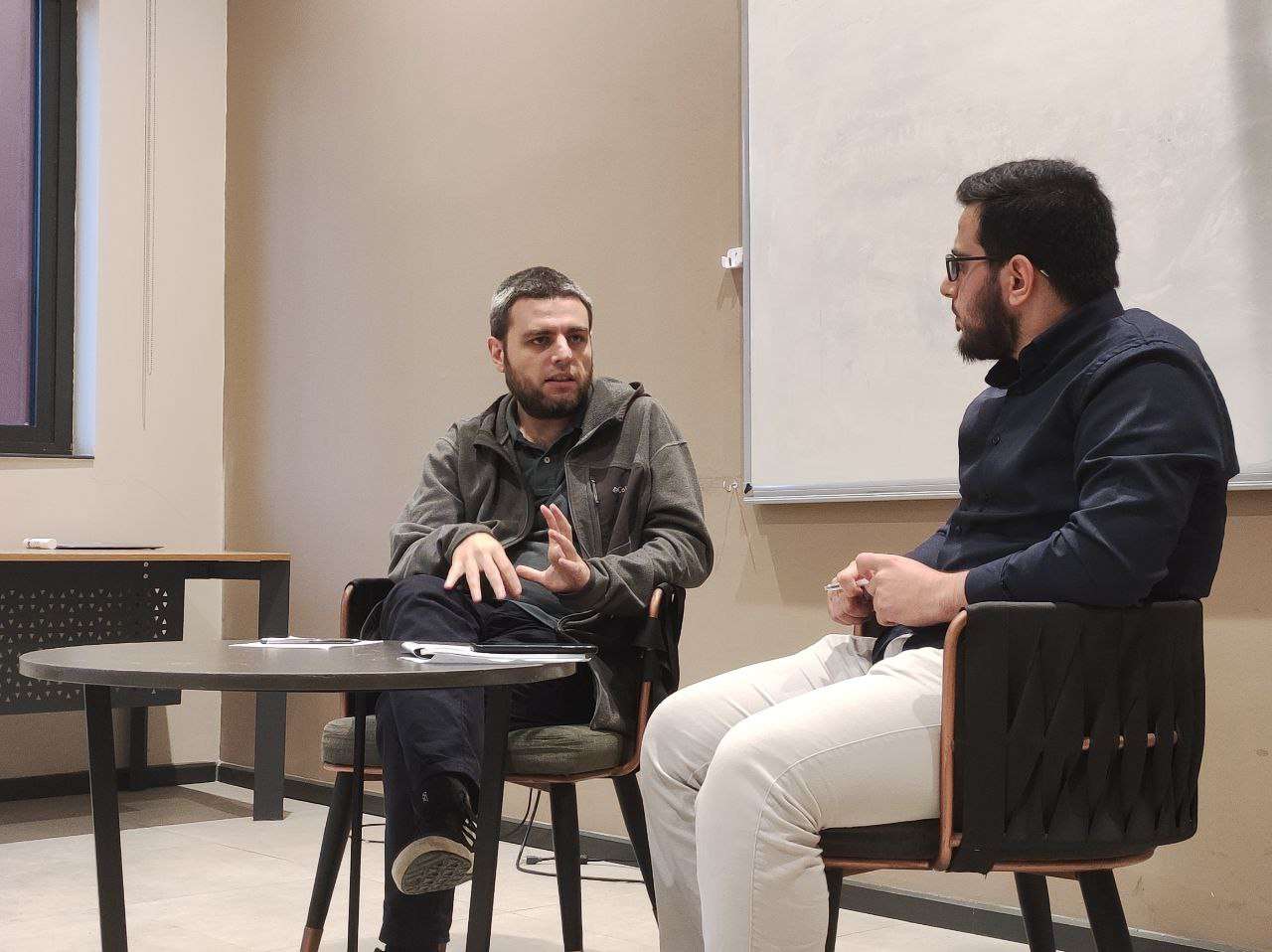


The “What is going on?” series, which is organized by the Arabic Club and the Political Science Club since the last semester, started with its first session entitled “The Future of Turkish-Arab Political Relations” on October 27, 2022.
In this series which aims to discuss the political, social, and economic updates and transformations in the Arab world, Ömer Behram Özdemir who is a researcher from ORSAM (Middle East Studies Center) was the guest speaker in the first event of this term. In the session, he talked about the most important stages of Turkish-Arab political relations since the outbreak of the Arab Spring in 2010.
The speech began with a brief history of the Arab Spring which was a wave of protest and revolt against oppressive regimes in several Arab countries that started in 2010. Ömer Behram Özdemir said that the Turkish government thought these uprisings would be an opportunity to create a space for its sphere of influence after the first year of the protests.
Ömer Özdemir, stated that there was a historical trauma regarding Turkish foreign policy with the Arab world since the establishment of the Republic of Turkey, and he thinks the reason for this trauma was the military background of the founding fathers of the newly established Turkish state and the wars and rebellions they experienced in the Middle East. According to Özdemir, “Ankara did not want to establish a political bond with the Arab world because they considered that it was wasting energy and time without positive results”. He mentioned that because of this indifference, bilateral relations had been almost like a “calm sea” for 60 years at the official level, Ankara had the tendency to approach the West, and communication with the Arab countries was cut off.
Responding to the question “What did the Arab Spring change in this relationship?”, he told how religious communities and NGOs amplified their domain and the development of trade. Mr. Özdemir said that Turkey found potential partners in good faith. Also, he mentioned that Ankara has lost its mediator position in the region and has become an actor with hard power who wants to test its own capacity.
Addressing the problems with the Israeli government at the dawn of this period we are in, Mr. Özdemir expressed that only after Prime Minister Netanyahu resigned, the relations between Ankara and Israel could begin to normalize, underlining how interstate tensions depend on the decisions of individuals.
“I do not think we will see a normalization between the Syrian regime and Ankara unless both sides gradually give up on their interests” speaking Mr. Özdemir gave examples from the PKK, immigrants, and border security. Reminding that Ankara will not leave the region unless Bashar al-Assad changes his attitude towards the PKK and also pro-Turkish local governments dominate the region. Ömer Behram Özdemir concluded his words by saying, “If Ankara's demands are not accepted and security is not provided, a reasonable agreement cannot be made, and the Turkish Republic will not withdraw”.
The program ended after the participants asked questions to the guest.